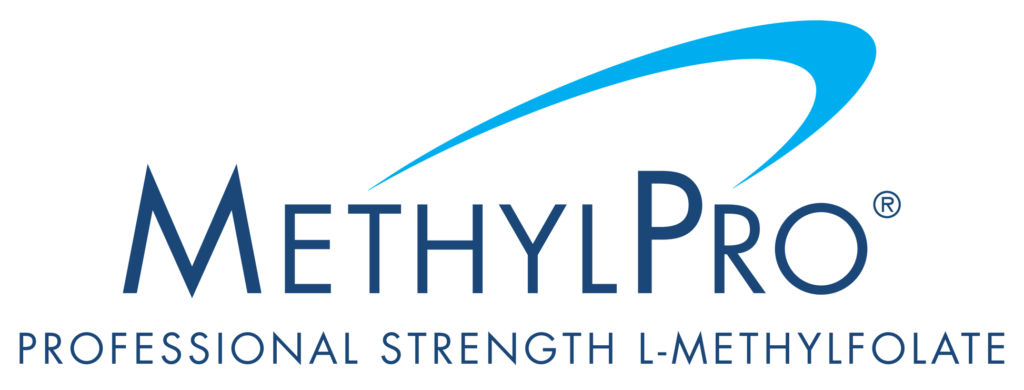It can be hard to get excited about a new year starting when you aren’t feeling your best physically and mentally. Maybe your mental health makes it difficult to take care of your physical body, or maybe your physical health is bringing down your mood. Either way, gut health and mental health are tightly linked.
If you follow the waves of research published in the health and wellness sector, you’ve probably read (more than once) that gut health is central and essential to whole-body health. The gut is the most abundant source of serotonin in the body, and the health and diversity of the microbiome can affect serotonin levels in the body. This may have led you to wonder if your gut health and your mental health may benefit from a gut reset.
Effective digestion is only the tip of the iceberg when it comes to the benefits of a healthy gut. The gut-brain axis has now been dubbed the microbiota-gut-brain axis, giving credit to not only our bodies but the species living inside them, for human health.
A healthy microbiome supports healthy weight maintenance, cardiovascular health, a balanced immune system, and, maybe most importantly to you, a balanced mood [1-3]. If you have any concerns about the health of your gut community, we’d like to recommend ringing in the new year with our 5R Protocol for Digestive Health.
5R Protocol for Digestive Health
The protocol is not a cleanse in the traditional sense. Like a cleanse, the 5R Protocol will support your body’s natural detoxification pathways, and the removal of dysbiotic microbes taking up space in your gut.
Unlike a cleanse, the 5R Protocol sets up your newly clean gut with functional nutrition for repair, and probiotics for a thriving microbiome. You can fall right back into poor gut health and mental health after a cleanse without completing these important steps of a protocol.
The 5 R’s are Remove, Replace, Reinocculate, Repair, and Rebalance.
You can find the full protocol and links to each product here on our website. It should be noted that, should you decide to complete the protocol for gut health and mental health, your doctor may elect to pair each step with lab testing.
Below, we will give you an overview of why each of these steps is important, and tips on how to reset your gut with the help of a few key supplementary nutrients.
Remove
This is the “detox” step in the protocol. In order to reset your gut, you must first get rid of what you don’t want in there.
Your gut is lined with microbial species, including bacteria and yeast. They can help you digest the food you eat, and in the process create new nutrition that is then absorbed, providing benefits for your body.
Alternatively, an overgrowth of pathogenic species creates indigestion, uncomfortable symptoms, inflammation, oxidative stress, and secondary health problems throughout the body and mind [4]. This state of unbalance or overgrowth of unwanted microbes is called dysbiosis.
There is only so much surface area in the gut to which microbes can attach. When too many undesirable species of bacteria and yeast have taken hold of the gut walls, it makes it difficult for good bacteria or “probiotics” to stay and multiply.
Botanical extracts can help to eliminate pathogens, leaving room for healthful species to repopulate. Effective plant extracts include barberry, Oregon grape, garlic, black walnut, and olive leaf extracts [5-8]. Happy Belly®, formulated by naturopathic physicians in collaboration with MetaMetrix labs, is a nutritional supplement that contains all of these herbal extracts (as well as caprylic acid) to address dysbiosis.
Caprylic acid, a fatty acid, can support detoxification from pathogens such as Candida yeast, Streptococcus, and Staphylococcus [9].
Aside from Happy Belly, a few other supplements that support removal and detoxification of the gut would be magnesium citrate and psyllium husk (for regular bowel movements), and Metabolic Detox Complete powder. Metabolic Detox Complete is a hypo-allergenic, vegan meal replacement shake mix that includes a highly bioavailable full-spectrum multivitamin, with protein and extra nutritional support for the liver’s detoxification pathways.
Replace
Proper digestion requires more than a healthy biome. One element of digestive issues is often a lack in the proper enzymes and digestive factors needed to fully break down food. Stress can add to this deficiency, by slowing the secretion of stomach acid and other enzymes [10].
Luckily, there are some nutritional options to replace missing digestive factors and complement the natural food breakdown occurring in the body.
A digestive aid, like GluDaZyme™, taken before a meal, provides a complete spectrum of digestive enzymes. A proprietary blend of dipeptidyl peptidase-IV enzyme, amylase I and II, lipase, glucoamylase, cellulase, hemicellulase, lactase, xylanase, and alpha-galactosidase, can aid in more complete breakdown of difficult-to-digest proteins and carbohydrates, such as gluten and those found in dairy and fibrous vegetable.
Commonly, in our years after 60, our bodies produce less stomach acid. This phenomenon, called hypochloridia, can lead to digestive discomfort due to incomplete digestion, especially of dietary protein. Betaine Hydrochloride with Pepsin is another supplement option that supports normal protein digestion.
Reinnoculate
Once you have ushered out the harmful bacteria from your gut, it’s time to introduce the strains of microbes that provide benefit to your gut health and mental health.
While probiotic bacteria can be found in fermented food and drinks, a probiotic supplement provides a more controlled abundance and selection of specific bacterial strains. While beneficial probiotics include Lactobacilli strains acidophilus, plantarum, and salivarius, as well as Bifidobacterium strains breve and lactis, the healthiest guts are diverse. A probiotic supplement such as BioMaintenance™ Shelf Stable Probiotic contains a high-potency diverse blend of beneficial strains of probiotic.
Depending on the amount of soluble fiber in your diet, you may also benefit from a prebiotic supplement. Prebiotics are specific types of fiber that probiotic species need to survive and thrive in the gut environment.
Metabolic Maintenance also offers one single-strain probiotic supplement of Saccharomyces Boulardii. S. Boulardii is a beneficial yeast that is resistant to antibiotics, stomach acid, and temperature change, and can support the health of your bowels when traveling or using antibiotics. It also has beneficial effects against Candida yeasts.
In addition, this strain benefits the integrity of both the intestine and the immune system via several different biological mechanisms.
Repair
Healthy gut flora is wonderful, but being able to absorb their benefits is important too. By repairing the health of mucosal cells and the gut lining, you will support healthy secretions and absorption.
While incomplete digestion and improper absorption can create health problems, too much permeability at the mucosal border (called “leaky gut”) is a problem too. Leaky gut can be the result of chronic stress, nutritional insufficiency, xenobiotic exposure, food sensitivities, dysbiosis, and inflammation in the bowels. Supplementation of specific nutrients can be critical in regenerating the mucosal barrier for proper structure and function.
L-Glutamine is a terri nutrient for promotion of mucosal regeneration. It can induce expression of specific genes involved in the growth and differentiation of cells in the small bowel mucosal brush border.
Our consulting naturopathic physicians also recommend NAC, Deluxe Scavengers™ antioxidant formula, and Vitamin D3 supplementation as a part of the repair step.
NAC is an antioxidant that supports the integrity and function of intestinal mucosa. Deluxe Scavengers™ provides a spectrum of antioxidants including vitamins A, C, and E, as well as CoQ10 and glutathione. Vitamin D3 is a critical nutrient for immune system function and wound healing, and contributes to repair of the mucosal lining. Deficiency of this nutrient has been linked to a variety of GI conditions.
Rebalance
Last, but certainly not least, is finding balanced health between your body and mind. Because the gut is so sensitive to stress, reducing stress or finding effective strategies for stress management is key to maintaining a healthy gut. In return, your healthy gut will support a balanced mood.
While emotional work and lifestyle changes are fantastic for removing or reframing stressors, supplemental nutrients and botanical extracts can help mitigate cortisol elevations when new stressors arise. Nutrition can also contribute to healthy levels of neurotransmitter production along the enteric and central nervous system to keep your mood in balance.
Our suggestion for supplementation in this step is MetaCalm®. MetaCalm® provides the amino acid building blocks and the necessary vitamin and mineral cofactors to help the body’s synthesis of both mood enhancing and calming neurotransmitters. MetaCalm® also provides a full spectrum multivitamin to bridge common nutritional gaps that occur in the typical Western diet.
If you feel like you could use some extra nutritional support for stress, you may also like to try our Stress Maintenance formula. Stress Maintenance is our most potent GABA supplement, with botanical extracts, glycine, and magnesium. Together this blend supports a more relaxed sense of being in body and mind. It is non-sedative, so can be taken at any time of day.
If restful sleep is difficult to achieve for you in times of stress, Metabolic Maintenace’s R.E.M. Maintenance™ is specifically designed to encourage the onset of sleep and help you stay asleep through the night for a brighter morning. It is non-habit forming and doesn’t leave you feeling groggy.
Good Luck!
We hope you are having a fantastic start to 2023. Here’s to a healthier and HAPPIER you in this new year!
References
- https://www.thelancet.com/journals/ebiom/article/PIIS2352-3964(22)00092-5/fulltext
- https://link.springer.com/article/10.1007/s12275-018-8079-2
- https://www.mdpi.com/2076-2607/8/10/1587
- https://link.springer.com/article/10.1007/s12038-019-9926-y
- https://ift.onlinelibrary.wiley.com/doi/abs/10.1111/j.1750-3841.2007.00545.x
- https://academic.oup.com/jac/article/53/5/832/747152
- https://www.sciencedirect.com/science/article/abs/pii/S0367326X08000208
- https://www.ncbi.nlm.nih.gov/pmc/articles/PMC3178942/
- https://www.sciencedirect.com/science/article/pii/S0022030205730332
- https://europepmc.org/article/nbk/nbk499926

